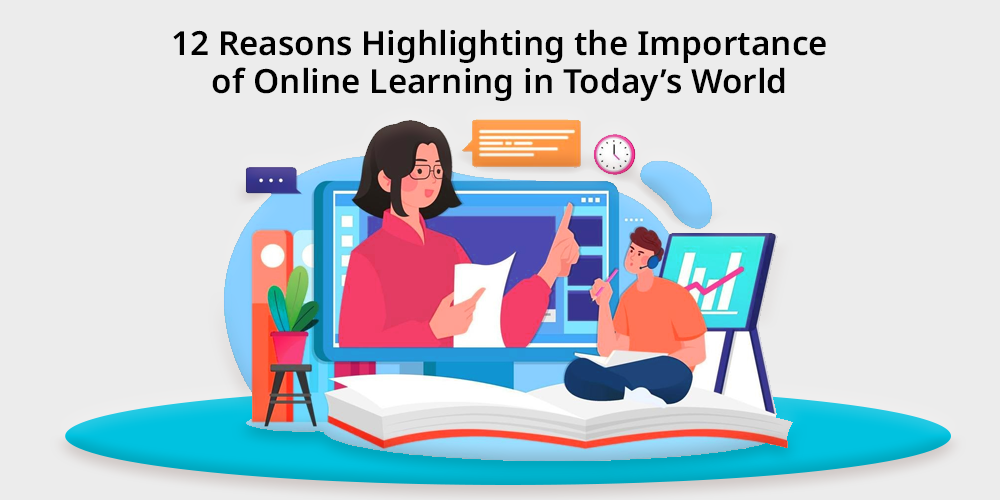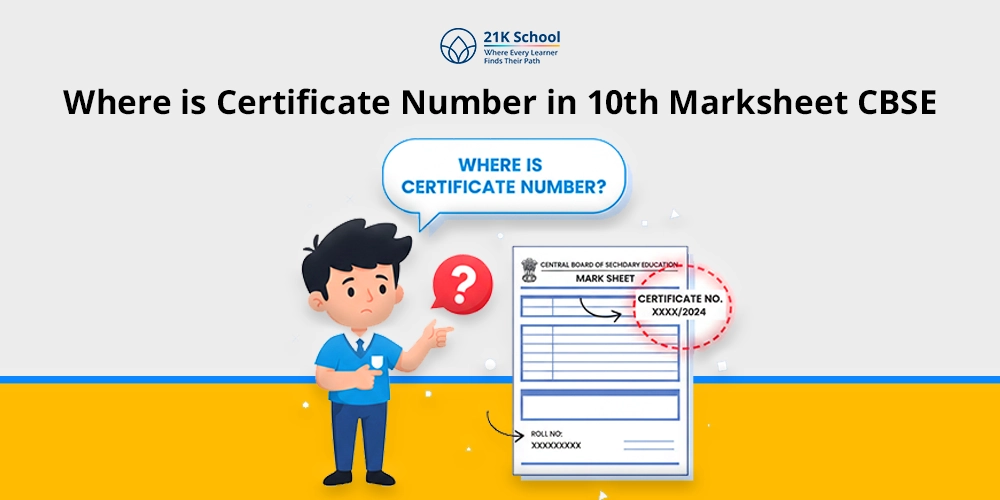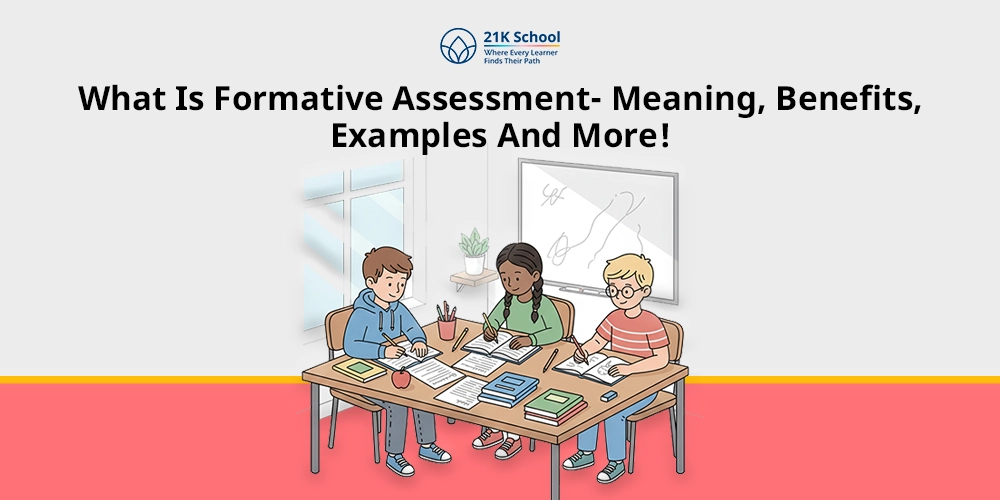
Chalkboards and crowded classrooms are a thing of the past. With the internet, students can learn anywhere, at any time, and even choose how they want to learn.
Whether it is a student from a small town or a teenager juggling sports and studies, online schools provide quality education accessible to everyone, now more than ever.
Online learning is creating a smarter, more flexible future for students worldwide, and in this blog, we’ll discover why it’s a game-changer.
Table of Contents
- What is Online Learning?
- 12 Importance of Online Education: A Smarter Way to Learn
- 1. Accessibility: Learning Without Borders
- 2. Flexibility That Accommodates Varied Learning Needs
- 3. Personalised Learning Through Technology
- 4. Personalised Learning Environment
- 5. Independent Learning Pace
- 6. Economically Efficient Replacement for Conventional Education
- 7. Access to Global Curricula and Educators
- 8. Networking Opportunities
- 9. Online Learning Develops Future-Proof Skills
- 10. A Safer and More Inclusive Learning Environment
- 11. Learning Never Stops: 24/7 Access to Resources
- 12. Engaging Parents in the Learning Process
- Conclusion: Embracing Online Learning for a Smarter Future
What is Online Learning?
Online learning is learning on the internet instead of in a classroom. Students use devices like laptops, tablets, or smartphones to participate in virtual classes, view pre-recorded lectures, take quizzes, and turn in assignments, all from home.
It can be live (in real time with an instructor) or self-paced, where students progress through the material at their speed. The best part? It’s not geographically, time-zone, or age-restricted–anyone with an internet connection can learn, at any time, anywhere.
Those are just a few of the things that make online learning better than classroom education
12 Importance of Online Education: A Smarter Way to Learn
1. Accessibility: Learning Without Borders
The internet has made education affordable and accessible to all, no matter their location. A student from a remote village can now learn the same lessons as a student in a metropolitan city. That was impossible around a decade ago.
It eliminates the need to move, commute, or rely on local schools. Online learning for students with special needs or those suffering from chronic illness, is an option to learn without physical exertion or social pressures.
It also provides opportunities for working professionals, stay-at-home parents, and older learners who wish to reskill or learn new interests.
In essence, education is no longer bound by geography–it’s accessible to everyone with an internet connection.
Read on to know more about, How the Internet is Beneficial to Students ?
2. Flexibility That Accommodates Varied Learning Needs
The most widely acclaimed characteristic of online education is flexibility. Fixed timetables apply in traditional classrooms, but virtual classrooms enable learners to study according to their schedules.
Online learning can support athletes, artists, caregivers, or part-time workers. Learners can schedule classes around their day, take breaks when needed, and study when they’re best focused.
Whether it’s listening to a recorded lecture late at night or reviewing during breakfast, online learning fits around the learner, not vice versa.
3. Personalised Learning Through Technology
With the aid of digital technologies and artificial intelligence, online learning provides a degree of personalisation that classroom teaching cannot hope to achieve.
Learning platforms can monitor a student’s progress and adapt the material to their pace and level.
If a student is having difficulty with algebra, for instance, the platform can provide additional practice or easier explanations. If they are doing well in science, it can offer more challenging material.
Adapting to online learning enables learners to learn better and stay encouraged throughout the process.
4. Personalised Learning Environment
Not every learner learns best within a noisy or structured classroom environment. Online education enables every student to design an individual environment which is tailored according to their preference.
They get to decide where to study, what device to use, and how their screen is organised. This is the magic of personalised learning.
Some prefer complete quiet, while others need soft music or background sounds to concentrate. They may study at a desk, on a couch, or learn on the move.
This independence decreases stress and enables students to concentrate more effectively, resulting in improved retention and greater learning.
5. Independent Learning Pace
Online schooling encourages students to own their learning.
As they’re not bound by the group pace, they can retread tough subject matter, pause and think about what they are learning, or progress at an accelerated rate in areas they know well.
The independent learning speed creates self-assurance, planning skills, and critical thinking. Students learn how to recognise areas of strength and weakness and accommodate their learning in response.
6. Economically Efficient Replacement for Conventional Education
Conventional schooling has many additional costs–uniforms, textbooks, transportation, food, field trips, etc.
Now you must be thinking: How much does learning online cost ?
E-learning significantly reduces or removes many of these costs in its entirety. Students don’t have to spend money on transport, materials, and accommodation (for college students). Several platforms provide low-cost or no-cost courses, and online schools tend to have lower fees than private schools.
This increases education’s affordability, particularly to large families or students from poorer backgrounds.
7. Access to Global Curricula and Educators
One of the best things about online schooling is that students now have access to global content. Students are no longer limited to the curriculum limited to their nation.
They can access IB, IGCSE, or specialised programs offered by foreign institutions. They also get to engage with teachers and professionals all over the world.
Read on how to pick the right online homeschool program for your child
This opens their eyes, exposes them to innovative teaching approaches, and enhances their communication and cultural sensitivity.
It’s a fantastic way to gear up for international careers and university studies overseas.
8. Networking Opportunities
Far from being cut off from others, online learning offers new ways to get in touch with fellow students across borders.
They can engage with virtual study groups, forums, webinars, and online events. Some platforms even provide mentorship initiatives where students can connect with industry experts and alumni.
This type of global networking is not only beneficial for academic purposes–it assists students in forming lifelong relationships and expanding their professional network at an early stage.
9. Online Learning Develops Future-Proof Skills
Digital learning educates 21st-century skills that employers seek out actively, such as digital literacy, communication, collaboration, and critical thinking.
Students learn to be self-managers, work autonomously, problem-solve independently, and apply tools such as video conferencing, cloud storage, spreadsheets, and project management software, amongst many others.
These are skills that directly transfer to the workplace, providing students with a solid head start in their careers.
Your next read: How online schooling helps invest in your child’s future ?
10. A Safer and More Inclusive Learning Environment
Online learning creates a safer environment for students who may feel nervous, bullied, or overwhelmed in the regular classroom. There’s less peer pressure, fewer distractions, and more control over social interaction.
If you want to know more about how online schooling helps children with social anxiety, click here.
It is also more inclusive for students with learning differences or mental health issues. They can learn at their own pace, access support as required, and avoid the anxiety of large-group environments.
Online schools and a child’s mental health go hand-in-hand, and each part of their education is equally important for their holistic development.
11. Learning Never Stops: 24/7 Access to Resources
Round-the-clock access is one of the largest benefits of online learning. Students are not restricted to school hours–they can learn whenever they’re ready.
They can access recorded lectures, review reading, take online tests, and check learning apps–anytime, day or night. This is particularly helpful during revision, an exam, or while catching up after a break.
Having access to resources 24/7 makes learning an ongoing, self-paced process, not just something that occurs within school hours.
12. Engaging Parents in the Learning Process
With traditional schooling, parents often feel like they are on the outside looking in, disconnected from what their child is learning.
That changes with online education. It permits parents to track progress firsthand, participate in virtual parent-teacher conferences, and even attend classes if desired.
This creates a more collaborative learning environment where They can provide better support at home because they know precisely what’s being taught and how their child is performing.
It fosters transparency, trust, and teamwork–three pillars on which successful education stands.
Conclusion: Embracing Online Learning for a Smarter Future
Online learning isn’t a stopgap measure, it’s a transformative change in the way we approach education.
With its unparalleled flexibility, accessibility, and customisation, it’s enabling students to learn better, faster, and smarter. It equips learners for the real world, not only with academic skills, but with the digital competencies and autonomy they’ll require in their careers and lives.
Whether you’re a parent finding options for your child, a student trying to learn better, or a teacher needing to respond to modern learning needs, online learning is here to stay, as it’s a future-ready solution that works for everybody.
This is why we as 21K School started India’s first online school, the classroom of tomorrow and how we learn is right at our fingertips, literally!


